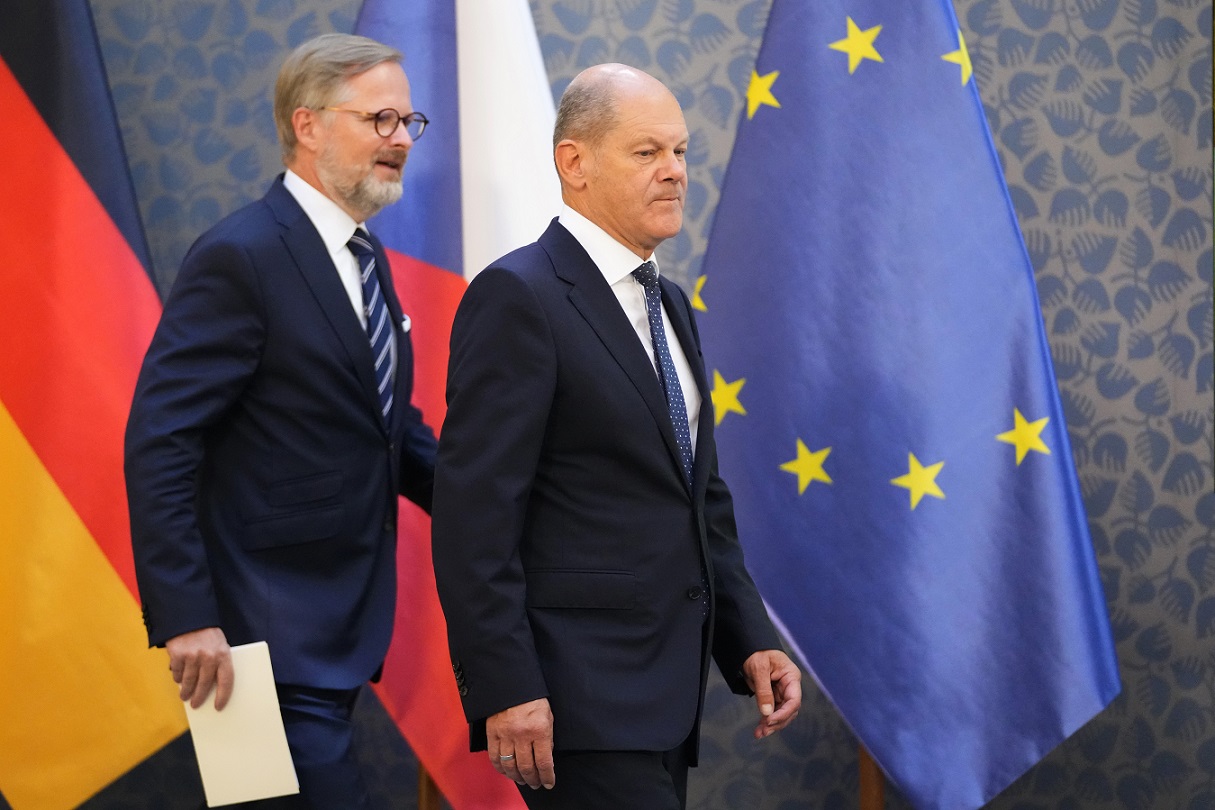We are indeed running the European Union during the difficult time of the Russian invasion of Ukraine and the energy crisis. It is one of the most difficult periods in the last few decades.
But an extremely difficult test comes only now at the very end of the presidency. It was prepared by German Chancellor Olaf Scholz, who decided, despite the strong opposition of all other member countries, led by powerful France, to massively help big German businesses with public money. A few weeks ago, he announced that his cabinet will put €200 billion — an amount equal to more than two entire state budgets of the Czech Republic — into capping the prices of electricity and gas for German households and businesses from January next year.
Ceilings for homes and small businesses are one thing — since the beginning of this year, basically all countries of the European Union have had them in various forms; France was the first to implement them in January.
However, helping big companies is a different story. According to European rules, this is considered illegal public support and exceptions must be requested from the European Commission. There is an important point to that. If someone uses public money to subsidize their companies, it threatens their competitors from countries where they do not have subsidies. It breaks down free competition in the European single market. It’s like a race where one of the contestants is doping illegally.
It is precisely with this argument that the government of Petr Fiala has been responding to the calls of large domestic companies for many months for the ceilings on electricity and gas prices to apply to them as well. “We can’t do it because of the rules of the European Union,” the Czech prime minister and the economic minister of his cabinet keep repeating.
Instead of ceilings, they only proposed a subsidy package for 30 billion korunas (€1.23 billion), which only selected companies will receive. Just yesterday, the European Commission granted the Czech Republic an exception for this aid.
Chancellor Scholz’s government barges into this and approves what we didn’t even dare to do. From next year, a ceiling on the price of electricity at the level of €0.13 per kilowatt hour for 70 percent of annual consumption should apply to large companies. At the current exchange rate, this translates to 3.25 korunas per kilowatt hour. For Europe-wide comparisons, the price in euros per megawatt hour is most often used — that works out to €130. This is almost twice as low as the Czech ceiling for households, small businesses, and public institutions. The cabinet set it at €240 per megawatt hour including VAT, and large companies are not entitled to it at all due to the ban on public support. So, a large German company will have a ceiling of almost half that of a small Czech company, not to mention the big companies that will not have a ceiling at all. They can only hope that the government will pay them some subsidy from the approved 30 billion korunas.
Prime Minister Petr Fiala has already declared that, as chairman, he will do everything to make the Germans withdraw from this public support, but Olaf Scholz is not worried about it yet and continues with his plan.
Other countries rightly complain that if they start pouring money into the economy like the Germans, they will ruin their state budgets. On top of that, it will keep inflation rising, which has now reached 10.4 percent in Germany itself, a country that has always been so afraid of waves of uncontrolled price increases.
Even strong supporters of deepening European integration, such as Radek Špicar, the vice-chairman of the largest European employers’ union, BusinessEurope, are convinced that if the Germans embark on such a solo action, it will turn into a very dangerous game for the future of the European Union.
“The hypothetical scenario that the Germans will complicate the adoption of a pan-European solution, such as the separation of gas from electricity production, and at the same time help their economy, including large companies, in violation of the rules of public support of the European Union, is very scary,” Špicar said at the beginning of October in the public Salon of the Echo weekly and the Václav Havel Library.
“If this were to happen, I would begin to doubt the very meaning of the European Union. That would completely shake the meaning of the project as it was created after the Second World War, but we are not that far yet,” he added.
But a month has passed, and here we are. The German government has approved aid to large companies. Now, like everyone else, they must send it to the European Commission for approval. The Czech presidency, led by Petr Fiala, has a big job ahead of it to stop the German solo plan, which would mean the disintegration of Europe.





